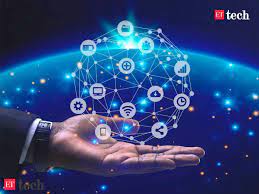Technology has become an integral part of our lives, revolutionizing the way we work, communicate, and interact with the world around us. From smartphones to artificial intelligence, advancements in technology have accelerated at an unprecedented pace, shaping the course of human civilization. In this article, we will explore the transformative impact of technology and delve into some key areas where it has made a significant difference.
Communication and Connectivity
One of the most significant changes brought about by technology is in the field of communication. In the past, communication was limited to face-to-face interactions or written correspondence. However, with the advent of the internet and mobile devices, the world has become a global village. Instantaneous communication through emails, social media, and messaging applications has connected people across continents, bridging cultural and geographical boundaries. This enhanced connectivity has paved the way for improved collaboration, increased knowledge sharing, and the rapid dissemination of information.
Healthcare and Medicine
Technological advancements have revolutionized the healthcare industry, transforming the way we diagnose, treat, and prevent diseases. From electronic health records to telemedicine, technology has improved patient care, reduced medical errors, and increased access to healthcare services. Innovative technologies like wearable devices, artificial intelligence, and big data analytics are being utilized for early disease detection, personalized medicine, and remote monitoring of patients. Moreover, advancements in medical imaging, robotics, and gene editing technologies have opened up new frontiers in treatment options and surgical procedures, enhancing the quality of life for millions of people.
Education and Learnin
Technology has disrupted the traditional education system, enabling learners to access information and educational resources like never before. Online platforms, Massive Open Online Courses (MOOCs), and educational apps have made learning accessible to anyone with an internet connection. Interactive simulations, virtual reality, and augmented reality tech have transformed the learning experience, making it more engaging and immersive. tech Additionally, artificial intelligence-powered adaptive learning systems provide personalized instruction, catering to the unique needs of individual students. These technological advancements have democratized education, breaking down barriers and empowering individuals to acquire knowledge and skills at their own pace.
Transportation and Mobility
The transportation industry has undergone a massive transformation due to technological innovations. Electric vehicles (EVs), self-driving cars, and shared mobility services have emerged as sustainable alternatives to traditional petrol-based vehicles. EVs not only reduce carbon emissions but also offer cost savings and improved energy efficiency. Autonomous vehicles have the potential to enhance road safety and reduce traffic congestion. Furthermore, ridesharing and carpooling platforms have revolutionized urban mobility, optimizing resource utilization and reducing the number of private vehicles on the road. As technology continues to evolve, we can expect further advancements in transportation, making it more sustainable, efficient, and accessible.
Environmental Sustainability
Technology is playing a vital role in addressing some of the most pressing environmental challenges of our time. Renewable energy technologies such as solar power, wind power, and energy storage systems are driving the transition to a low-carbon economy. Smart grid systems enable efficient energy distribution and consumption, reducing wastage and optimizing resource utilization. Internet of Things (IoT) devices and sensors are used for environmental monitoring, allowing us to gather real-time data on air quality, water resources, and wildlife conservation. Advanced analytics and machine learning algorithms help us make informed decisions for sustainable resource management and environmental conservation.
Conclusion
Technology has permeated every aspect of our lives, revolutionizing the way we live, work, and interact. It has reshaped industries, improved communication and connectivity, transformed healthcare and education, and promoted environmental sustainability. However, as we embrace the benefits of technology, we must also be mindful of the challenges it poses, such as data privacy, cybersecurity, and the potential for job displacement. It is crucial








